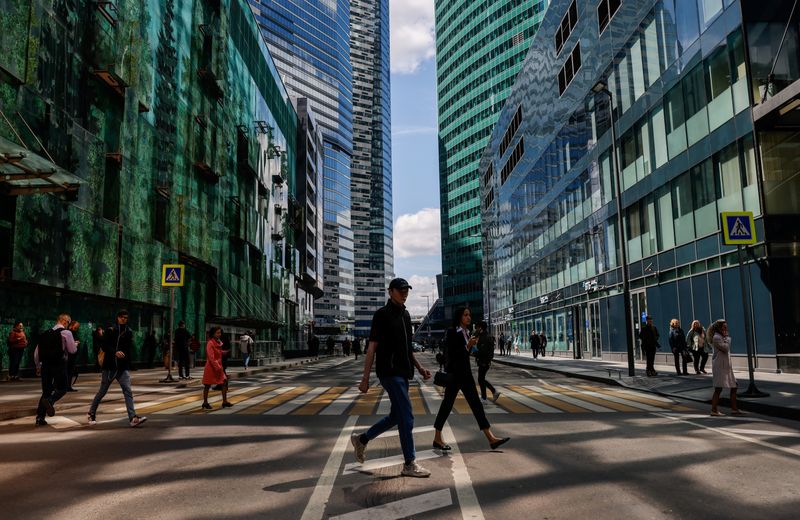(Reuters) - Russia's economy will grow by 1.1% in 2024, slower than previously forecast, the International Monetary Fund said, after significant spending and resilient consumption in a stretched labour market support growth of 2.2% this year.
Moscow plans to allocate almost a third of increased budget spending next year to defence as it diverts more resources towards its invasion of Ukraine. Reuters reported exclusively in August that Russia had doubled its 2023 defence spending target.
"The rise in growth reflects a substantial fiscal stimulus, strong investment, and resilient consumption in the context of a tight labour market," the IMF said on Tuesday in its World Economic Outlook, in reference to this year's forecast.
Russia's economy ministry expects gross domestic product (GDP) to expand 2.8% this year, bouncing back from a 2.1% decline in 2022. Analysts polled by Reuters in late September expected a 2.3% increase. In its July outlook, the IMF had forecast 1.5% growth.
But the IMF lowered its forecast from 1.3% for 2024, giving Russia the weakest projections in its list of major emerging market and developing economies, for whom average growth this year and next is seen at 4%.
Russia's economy ministry forecasts 2.3% growth next year, while the Bank of Russia's forecast range is 0.5-1.5%.
President Vladimir Putin is girding the $2.1 trillion economy for a long war and regularly touts Russia's resilience against Western sanctions.
Rising oil prices and recovering energy revenues have reduced pressure on Russia's budget deficit. The IMF said Western sanctions on Russian crude oil exports have had mixed effects, with Russian oil now trading above the $60 price cap imposed by the Group of Seven nations.

But Russians likely face double-digit interest rates until at least 2025 and the rouble tumbled to over 18-month lows this week on foreign currency outflows. Labour is scarce, with unemployment at record lows, something Putin and the central bank have drawn attention to.
High military spending may help Russia in the short-term, but the economy's long-term prospects are bleak, economists have said, especially as areas like schools and healthcare face effective spending freezes in the years ahead.